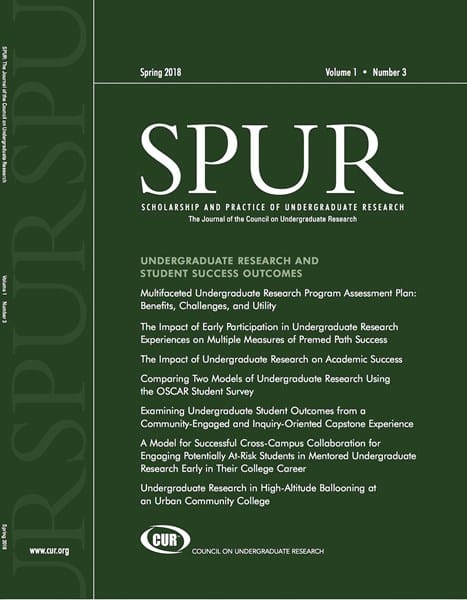SPUR (2018) 1 (3): https://doi.org/10.18833/spur/1/3/14
The authors describe an undergraduate research program at the City Colleges of Chicago (CCC) organized around high-altitude ballooning and carried out primarily in an open, maker-space environment. Two cohorts of students were recruited. They undertook projects in biology, chemistry, engineering, environmental science, and physics. Via the Undergraduate Research Student Self-Assessment, both cohorts reported positive gains. The 2016 cohort was assessed immediately after the program ended, and the 2015 cohort was assessed one year afterward, suggesting the benefits of the program persisted for at least a year. Longitudinal data showed that the students completed degrees or transferred at rates higher than the general CCC student population. These data indicate that students benefited from their experiences and developed identities as scientists and engineers.
More Articles in this Issue
No posts found


